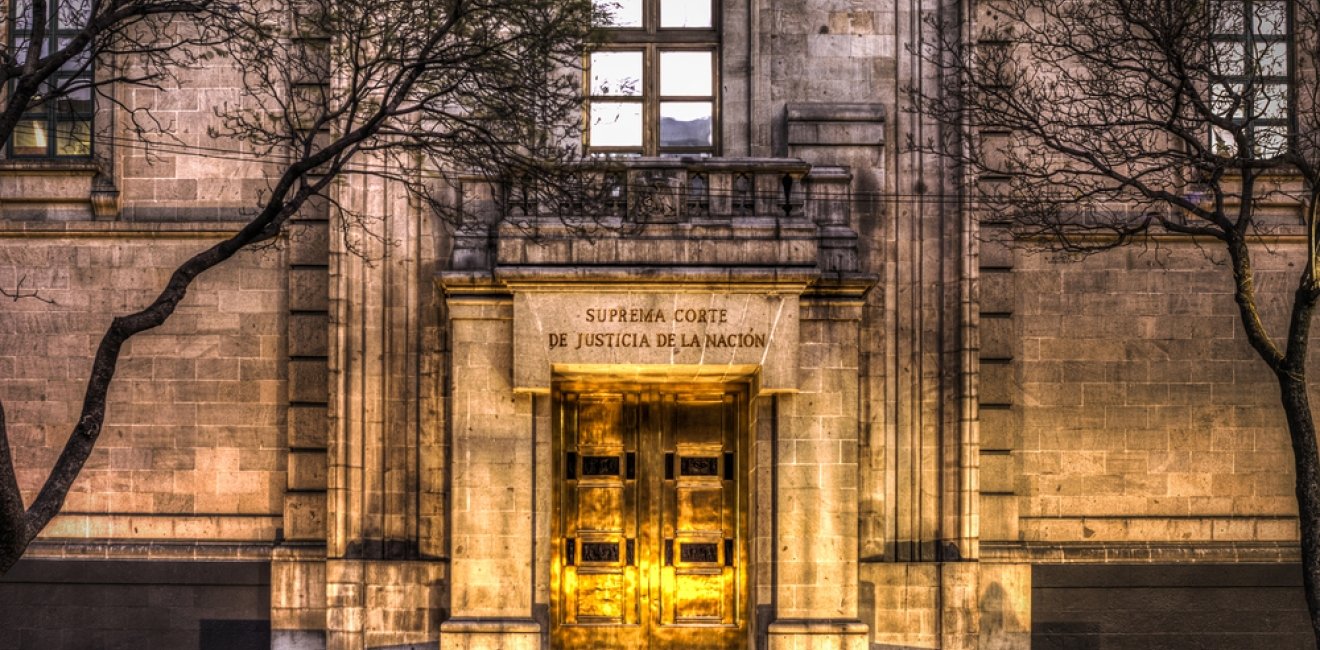Andrés Manuel López Obrador’s (AMLO) administration, with support from Congress, has tried more than once to weaken the Mexican judiciary’s independence, possibly to hinder any ruling it could make as a counterbalance against his questionable policies. Since the beginning of his term, he has successfully appointed allies as justices to the Supreme Court. At present, at least two of them seem to support him unconditionally.
Arturo Zaldívar, the former Supreme Court president, showed increasing political support for AMLO during his last years in this position. In 2021, Mexico’s Congress passed a judicial reform bill dubbed the “Zaldívar Law'' to extend his term as Supreme Court president for an additional two years; Zaldivar rejected it.
In contrast, Norma Piña, the current Supreme Court president, is a professional judge who has proven her loyalty to the Constitution as well as her democratic and republican streak when opposing AMLO’s reforms. Under her leadership, the Supreme Court overturned AMLO’s electoral reforms, by declaring that Congress violated Articles 71 and 72 of the Federal Constitution, arguing that not all congressional political parties participated in the legislative process when said reforms were approved. These reforms sought to weaken the National Electoral Institute and put free elections at risk in Mexico. The electoral system is widely considered the jewel of Mexico’s young democracy.
However, the Federal Judicial Branch (FJB) now faces a new threat to its independence, which could be seen as retaliation: asset expropriation. On October 10, 2023, the Budget Commission in the Chamber of Representatives approved a reform to eliminate 13 of the 14 FJP’s trusts. A section of the reform provides that at least a portion of any funds resulting from the elimination of the judiciary trusts should now be deposited to Federal Treasury accounts under executive control.
The reform seeks to prevent the Judiciary from operating trusts that are not included in the FJB Law; only one of the 14 is explicitly included in the same. However, the Federal Budget Law allows for trust operation without that specification. Furthermore, the proposed reform establishes that part of the liquid resources will be deposited to the Federal Treasury; in contrast, the Federal Budget Law establishes that any resources must be deposited in the FJB Treasury to safeguard its budgetary autonomy and independence.
Some of the money in the trusts is allocated for FJB staff benefits, without which their labor rights would be at risk, potentially creating legal consequences for the FJB. No trust fund should be eliminated without a previous risk and impact evaluation, given that many are set up over time to guarantee the financing of certain rights.
At México Evalúa, we believe that the extinction of the FJB trusts might also damage its budget liquidity in 2024, given that it might have to be used to pay those benefits.
The FJB budget is around 0.4% of GDP, which is low compared to other countries like Brazil, Colombia, and Peru. In addition, for several years now, the Judiciary has faced more work and less budget. The number of cases submitted to FJB bodies increased by 43% (377,607 more cases) between 2010 and 2022. In the same period, its spending grew by only 19%. For this reason, spending per case is lower. If we look solely at the present administration, judiciary spending has fallen almost 10% between 2018 and 2022. Moreover, because of the growing number of cases, spending per case fell by 23%, dropping from $82,000 pesos per case in 2018 to $63,000 pesos in 2022.
Furthermore, in 2021, the FJB received increased functions, resulting from various reforms. For example, the labor justice reform transferred the resolution of conflicts between workers and employers to the FJB’s labor courts or state courts. Likewise, reforms have been approved in criminal, civil, and family matters, the implementation of which falls on the FJB. However, specific budget items to support the implementation were not provided.
Judiciary independence is a keystone for the FJB to carry out its work and build a democratic rule of law. More work and less budget represent a challenge for the FJB, not only for its operation but also for creating a substantial risk to its effectiveness, as well as the quality and access to justice. Policies to protect judiciary independence and its budget should be front and center. To prevent the FJB’s budget from being used as a tool for retaliation or being allocated at the discretion of legislators, it should be set at 2% of the annual Federal Government's programmable spending; this proportion is only 1.3% at present. This guarantee, based on international recommendation, should be established at the constitutional level. It could help us protect the FJB’s independence, a minimum budget, and a control against reductions that could place Mexicans’ access to justice at risk. It is important to note that the 2% guarantee is already included in some state Constitutions, such as Jalisco. And in Costa Rica, for example, the financing of its Judicial Branch must be equal to or more than 6% of the Government’s ordinary income.
The remaining issue that we still need to reflect upon is how this discussion could help the president build social support for the reform seeking to initiate elections for Mexican judges.
Author


Mexico Institute
The Mexico Institute seeks to improve understanding, communication, and cooperation between Mexico and the United States by promoting original research, encouraging public discussion, and proposing policy options for enhancing the bilateral relationship. A binational Advisory Board, chaired by Luis Téllez and Earl Anthony Wayne, oversees the work of the Mexico Institute. Read more

Explore More
Browse Insights & Analysis
Greenland’s New Governing Coalition Signals Consensus

The Future of France's Far-Right Party

Ukrainian Issue in Polish Elections



